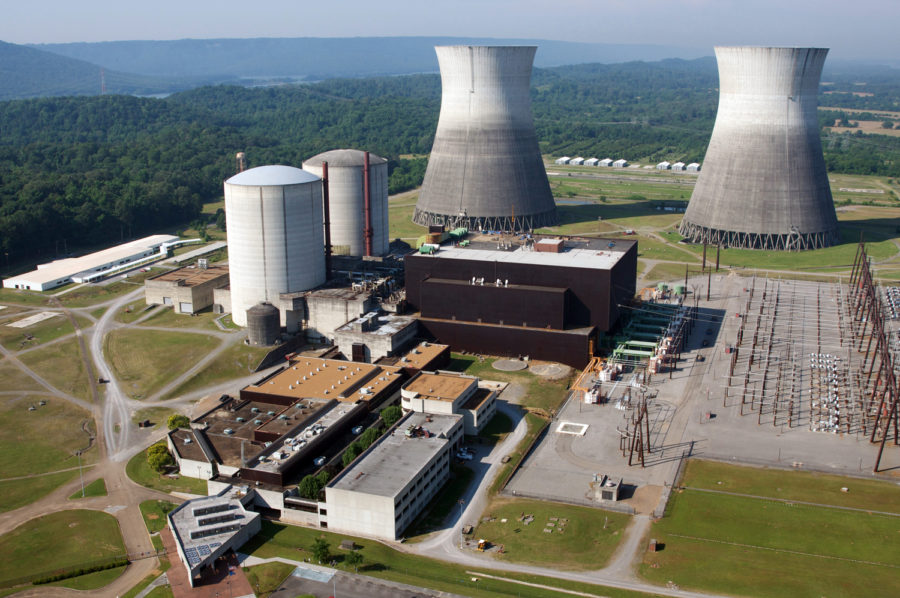Opinion: Nuclear Fusion
An image of Bellefonte Nuclear Power Plant courtesy of Wikimedia Commons.
Nuclear fusion, some have described it to be the next possible source of energy to replace fossil fuels. For today’s world, riddled with the effects of global warming and high-power needs, a solution to supplying energy is surely needed. However, is nuclear energy a truly sustainable answer?
For those who don’t know, nuclear fusion is a series of nuclear reactions where subatomic particles (the neutrons you learned about in chemistry) are transferred atom to atom in a series to create energy and heat. This heat boils water which releases steam in order to turn a turbine to create electricity.
Nuclear power is a clean form of electricity, but runs high risks of a leak of the radiation created when neutrons collide with other atoms and the high costs of building the nuclear plants keep it from being used on a large scale. The current cost of building a nuclear power plant currently runs at about nine billion dollars (UCS 2009), for countries and corporations with intentions of supplying energy that is surely a hefty price.
Even though having a clean power supply may be worth the risk of an occasional leak that can be isolated on the private corporate land, is it really worth the cost to the government? Nuclear power requires materials like the radioactive uranium to function. This material must be mined and then bout at an expensive price. When totaled with buying the other equipment, such as control rods to keep the neutrons from escaping, or hiring people with the training required to manage the plant totaled with the cost of building the plant the bill is simply too high to be used on massive scale, especially in the United States where debt still has to be paid. Then why not give it to the corporations as some of them already use this form of power? The same costs also apply to corporations on top of taxes and regulations that they have to pay and be approved of passing before the operation can even start and become a product that can be sold to the public.
Yes, nuclear power would be a great clean source of power. However, this same power source cannot be efficiently applied to the massive scale that is needed to provide for the world’s population. In this case, the inherent barrier that stands in the way is our own economy with its costs that prevent this possible future from becoming a reality.









